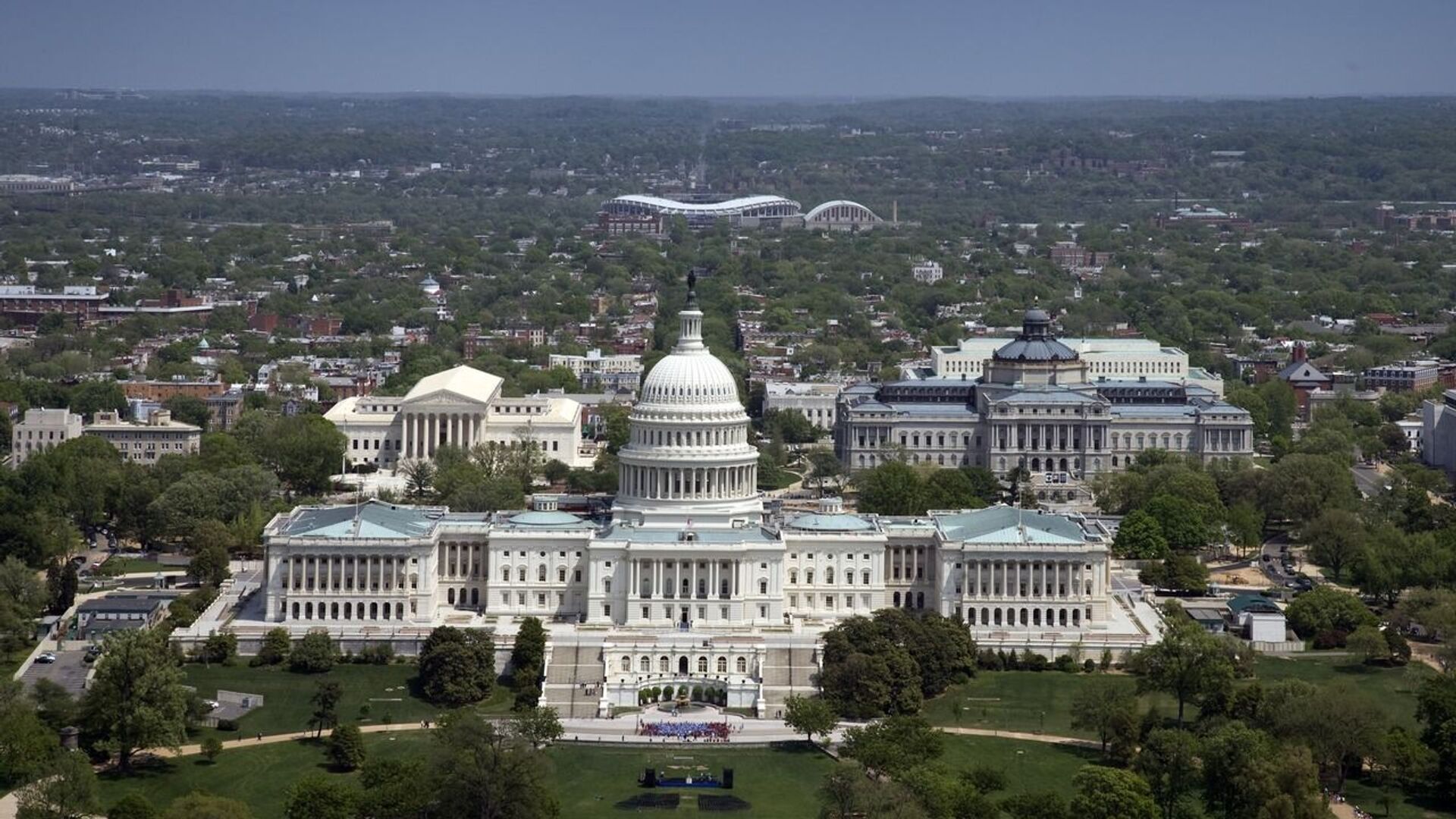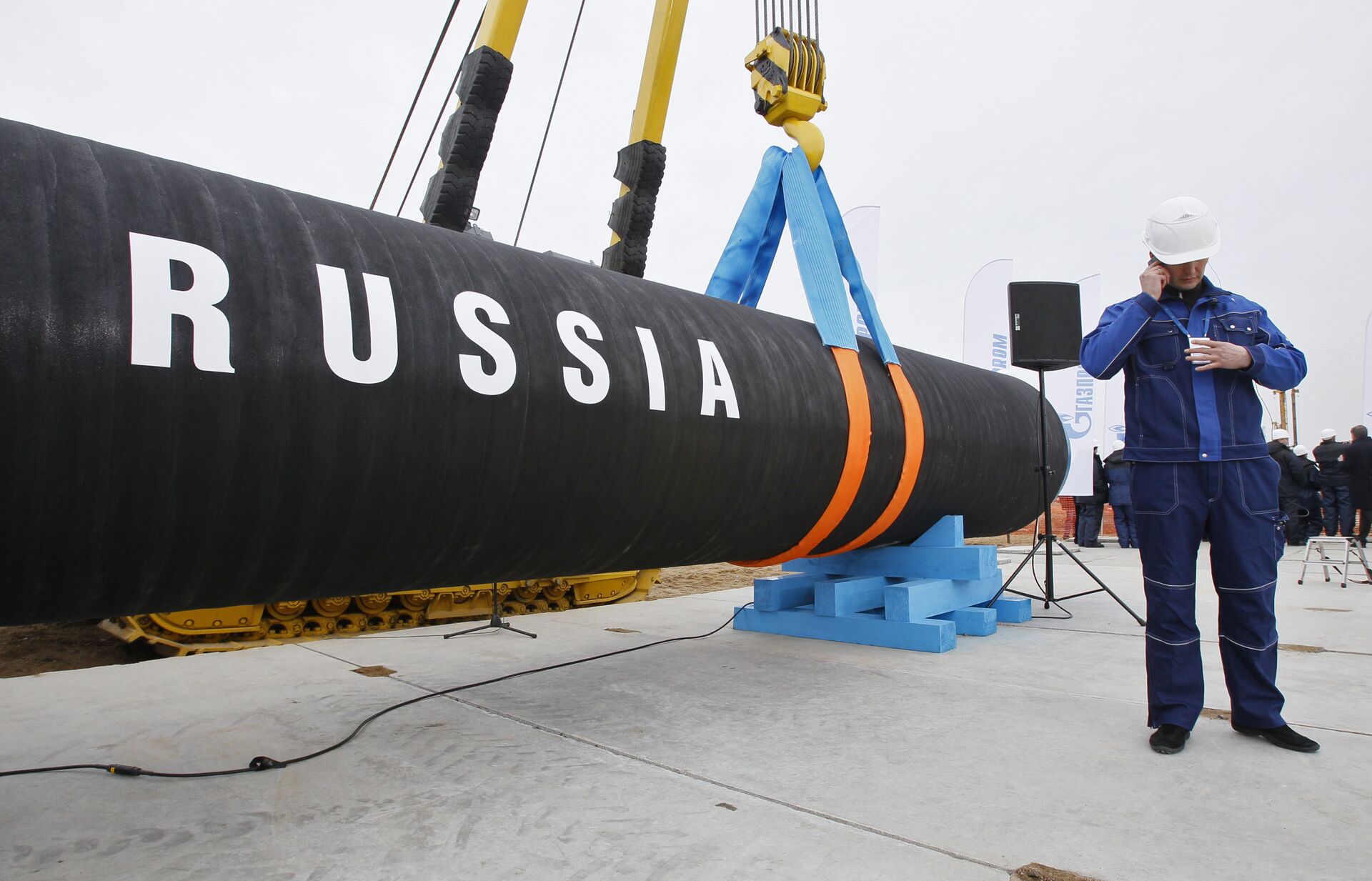US Senate at ‘Impasse’ Over Nord Stream 2 Sanctions in Anti-Russia Bill, Menendez Says
19:30 GMT 10.02.2022 (Updated: 21:19 GMT 19.10.2022)

CC0 / /
Subscribe
The US Congress has prepared what Senator Bob Menendez (D-NJ) called “the mother of all sanctions” bills against Russia, which would aim to cripple the Russian economy by punishing nations who would continue trading with Moscow if Russian troops invaded Ukraine.
After claiming to be close to passing the Defending Ukraine Sovereignty Act of 2022, Congressional Democrats seem to have become stuck in familiar shoals: attempting to sanction the Nord Stream 2 gas pipeline, which runs from Russia to Germany via the Baltic Sea.
“I think we have hit an impasse,” Menendez, who chairs the Senate Foreign Relations Committee and introduced the sanctions bill last month, told CNN on Thursday. He said lawmakers couldn’t agree on sanctions imposed on Nord Stream 2 and large Russian banks, so they were looking at a “different process to explore.”
The bill has come in response to US fears that Russian troops deployed in southern Russia present an imminent invasion threat to Ukraine, despite Moscow making no demands or threats against Kiev and denying the deployment’s intent to attack. Kiev has also downplayed Western fears, saying the Russian deployments are both typical and pose no danger to them.
In December, Moscow submitted a security proposal that would defuse tensions in Eastern Europe, but so far NATO has rejected the core issue at hand: halting the continued eastward expansion of the Brussels-based alliance, which has absorbed several countries on the Russian border in recent years while describing Russia as its primary “threat” in strategic policy documents. That would preclude Ukraine from joining, which has requested its application be fast-tracked, although NATO leaders have been skeptical of that request so far.

In this April 9, 2010 file photo, a Russian construction worker speaks on a mobile phone in Portovaya Bay some 170 km (106 miles) northwest of St. Petersburg, Russia, during a ceremony marking the start of construction for the Nord Stream pipeline.
© AP Photo / Dmitry Lovetsky
Despite this, the Biden administration has postured as needing to appear tough against Moscow, threatening to rapidly deploy troops to Eastern Europe and claiming the massive sanctions bill is a type of deterrent. Another perspective on the situation suggests US President Joe Biden may be attempting to salvage a slacking approval rating and direct attention away from the Democrats’ inability to pass any of the key legislation for his domestic agenda.
House Speaker Nancy Pelosi (D-CA) was reportedly attempting to force the bill through late last month with little-to-no debate about its provisions, which some congressional aides feared would close off “space for nonmilitary options.”
Ten days ago, Menendez told CNN the Senate’s version of the bill was “on the one-yard-line,” an American football term meaning they were extremely close to victory. That was clearly an exaggeration.
That Nord Stream 2 would be where the Senate tripped should be no surprise: last month, a Republican-led alternative to the White House’s plan was voted down. That bill sought an immediate sanction on the gas pipeline, which has not yet been turned on; Democrats argue the move would sow disunity in the NATO alliance at a time when Berlin seems ambivalent about Washington’s bellicose posturing.
After meeting with German Chancellor Olaf Scholz earlier this week, Biden told reporters that if Russian troops crossed the Ukrainian border, “there will no longer be Nord Stream 2.”
Indeed, Senate Minority Leader Mitch McConnell (R-KY), who leads the GOP in the Senate, told reporters that Biden “has all the authority he needs" to act against Russia, perhaps hinting that Biden could use the 1977 International Emergency Economic Powers Act (IEEPA), a law that allows the president to regulate international commerce in the event of a national emergency.
"He needs to decide the timing,” McConnell added. “I think it's going to be a serious deterrent if it's executed before the invasion, not afterwards."

